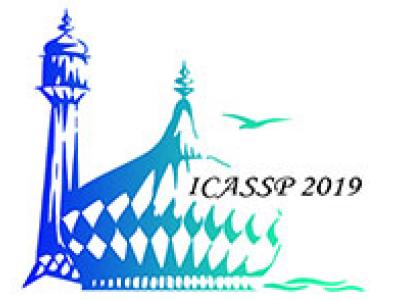
ICASSP is the world’s largest and most comprehensive technical conference focused on signal processing and its applications. The 2019 conference will feature world-class presentations by internationally renowned speakers, cutting-edge session topics and provide a fantastic opportunity to network with like-minded professionals from around the world. Visit website.

- Read more about AN HETEROGENEOUS COMPILER OF DATAFLOW PROGRAMS FOR ZYNQ PLATFORMS
- Log in to post comments
In recent years, the number and variety of heterogeneous multiprocessor system-on-chip MPSoCs, such as for instance Zynq platforms, has sensibly increased. However, today all design flow solutions capable of programming the different components of such platforms require to the designer either to modify the software or hardware based designs to obtain higher performance implementations. Thus, the developer needs to either rewrite functional blocks in HDL or to use high-level synthesis of C-like sequential languages with platform locked extensions.
- Categories:
 31 Views
31 Views
- Read more about ACOUSTICALLY GROUNDED WORD EMBEDDINGS FOR IMPROVED ACOUSTICS-TO-WORD SPEECH RECOGNITION
- Log in to post comments
- Categories:
 28 Views
28 Views
The huge volume of data that are available today requires data-
selective processing approaches that avoid the costs in computa-
tional complexity via appropriately treating the non-innovative data.
In this paper, extensions of the well-known adaptive filtering LMS-
Newton and LMS-Quasi-Newton Algorithms are developed that
enable data selection while also addressing the censorship of out-
liers that emerge due to high measurement errors. The proposed
solutions allow the prescription of how often the acquired data are
- Categories:
 21 Views
21 Views
- Read more about AUDIO FEATURE GENERATION FOR MISSING MODALITY PROBLEM IN VIDEO ACTION RECOGNITION
- Log in to post comments
Despite the recent success of multi-modal action recognition in videos, in reality, we usually confront the situation that some data are not available beforehand, especially for multimodal data. For example, while vision and audio data are required to address the multi-modal action recognition, audio tracks in videos are easily lost due to the broken files or the limitation of devices. To cope with this sound-missing problem, we present an approach to simulating deep audio feature from merely spatial-temporal vision data.
- Categories:
 16 Views
16 Views
- Read more about Peak Detection and Baseline Correction using a Convolution Neural Network
- Log in to post comments
- Categories:
 270 Views
270 Views
- Read more about PROMISING ACCURATE PREFIX BOOSTING FOR SEQUENCE-TO-SEQUENCE ASR
- Log in to post comments
- Categories:
 11 Views
11 Views
- Read more about BACKGROUND ADAPTATION FOR IMPROVED LISTENING EXPERIENCE IN BROADCASTING
- Log in to post comments
The intelligibility of speech in noise can be improved by modifying the speech. But with object-based audio, there
is the possibility of altering the background sound while leaving the speech unaltered. This may prove a less intrusive approach, affording good speech intelligibility without overly compromising the perceived sound quality. In this
ICASSP_TJC.pdf
- Categories:
 13 Views
13 Views
- Read more about ON THE PERFORMANCE OF DIBR METHODS WHEN USING DEPTH MAPS FROM STATE-OF-THE-ART STEREO MATCHING ALGORITHMS
- Log in to post comments
In this paper we compare the quality of synthesized views produced by four DIBR methods when fed by depth maps estimated by five state-of-the-art stereo matching algorithms. Also, we compute the correlation between four popular metrics for ranking stereo matching algorithms and two metrics commonly used to evaluate synthesized views (PSNR and SSIM) plus one specific for DIBR.
- Categories:
 18 Views
18 Views
- Read more about A Characterization of Stochastic Mirror Descent Algorithms and Their Convergence Properties
- Log in to post comments
Stochastic mirror descent (SMD) algorithms have recently garnered a great deal of attention in optimization, signal processing, and machine learning. They are similar to stochastic gradient descent (SGD), in that they perform updates along the negative gradient of an instantaneous (or stochastically chosen) loss function. However, rather than update the parameter (or weight) vector directly, they update it in a "mirrored" domain whose transformation is given by the gradient of a strictly convex differentiable potential function.
- Categories:
 48 Views
48 Views
- Read more about PROMISING ACCURATE PREFIX BOOSTING FOR SEQUENCE-TO-SEQUENCE ASR
- Log in to post comments
- Categories:
 9 Views
9 Views